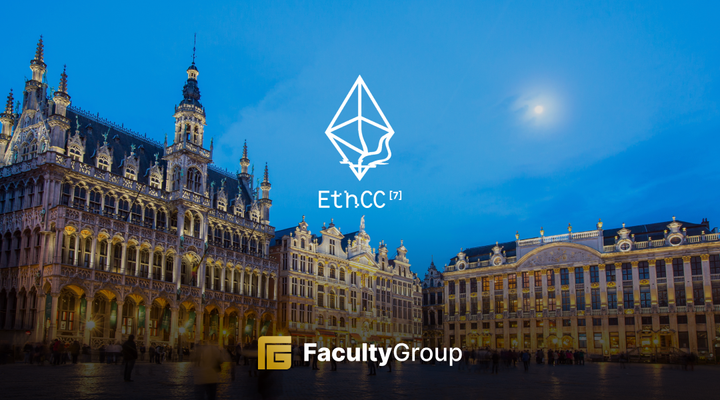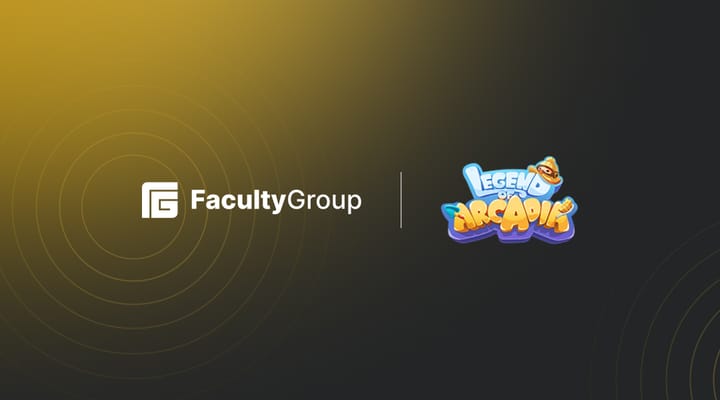Decentralised Science: The Network State

Over the last decade, we have witnessed the polarisation and politicisation of Science when it comes to climate change, the pandemic and environmental protection. I was struck by the way that the funding structures and principles of DeFi (decentralised finance) could be applied to science to create better outcomes for science, researchers and academics.
In his book, The Network State, Balaji S. Srinivasan argues that a network state is a social network with an agreed-upon leader, an integrated cryptocurrency, a definite purpose, a sense of national consciousness, and a plan to crowdfund territory. For me, I was inspired by his idea to create a Network State for Open Science. This was the genesis of DeSciWorld, the project I founded to unite and empower the decentralised science community. DeSciWorld is the one-stop shop for users to view, engage with, and understand all that is happening in the world of Decentralised Science. Let’s discuss what Decentralised Science is, its mission and how it can benefit society and individuals to create innovative solutions to many of the problems our world faces today.
What is Decentralised Science?
Decentralised Science is an extension of the open science movement, powered by blockchain technologies. We aim to create community-led structures that meet the needs of scientists and communities rather than academia, corporations or governments, which currently invest in and fund most scientific research.
There are four main areas within DeSci that we are focusing on at DeSciWorld:
- Research Funding
Currently, most research grants and funding within science comes from three main areas: academia (through universities and foundations, corporations (doing research for product/drug development/ESG commitments, or governments (such as the National Science Foundation and EPA in America, the UK’s Research Councils or the EU’s HORIZON program). All of these funding sources require rigorous and time-consuming grant applications and long lead times for approval. Using DeFi tools for fundraising could greatly increase the amount of funding available to scientists and the independence of the research being commissioned.
- Data Ownership
Being able to own, verify and share data in a transparent manner will enable scientists to collaborate together on research projects while maintaining control and ownership over their research, data and findings. Leveraging any data: patient health data, weather monitoring data, personal identifying data, becomes much more powerful in DeSci. Users could ensure all identifying information is encrypted and secure yet still sell access to the data through Web3 mechanisms. For example, most scientific data is hosted and maintained by centralised entities and generally, the concept of the open-source "data lake" scares the majority of academia. However, blockchain technologies completely redefine data and data asset management, enabling researchers to have sovereign ownership of their data; choosing how to leverage that data and whom to share it with becomes much easier.
- DAO Governance
DAOs can provide Open Science with governance structure and organisational frameworks such as organising and sharing IP, treasury management and protocol governance. It is a unique way to create communities within science built around a new era of data science and collaboration.
- Incentivisation/Sovereignty
The intensive and often frustrating process of applying for research grants, limits research to specific areas which are being funded and often comes with caveats and restrictions. These can stifle and limit broader scientific research aims and areas of inquiry. Decentralised science has the power to create a new era where science can be self-funded similar to crowdfunding, and also allow for fractional ownership of IP. Scientists can fund their own research through an independent process and work together with like-minded individuals to produce results and share the benefits of these with those that have supported their work.
At DeSciWorld, we are committed to creating ecosystem tools for DeScientists, including the concept of The Brain or Hive Mind. The structure of the brain is designed to function collaboratively with both AI and other research communities. This decentralised repository will act as a master hub for data, the scientific method, to Question, Research, Answer and give Results powered by AI, to create a collaborative information aggregation platform for Open Science and research scientists across the globe. At its heart is open-source collaboration, improved organisation of knowledge and decentralisation of research.
The DeSci Movement
The advent of AI adds further urgency to our mission. It is more important than ever to create alternative structures to verify data and scientific outcomes for scientists, individuals and society as a whole. Decentralised Science covers wide-ranging fields, communities and groups, from those who work within traditional science (academics, research scientists and graduate students)to Open Science purists who want to burn down the TradSci ‘system’; both believe in their mission to improve outcomes for humanity and science as whole. At DeSciWorld, we believe that there is room for all voices to be heard and for these communities to work together. Including all voices is a necessary part of the DeSci movement; as such, we are also piloting a DeSci Ethical Framework together with ethics experts from across the space. Creating an open-source, opt-in model that helps to guide "good DeSci" is another benefit of the decentralised technology stack that powers this industry.
As science and society grapple with the ethical complexities of AI, BioTech and Longevity, it is important to focus on how we create the best outcomes, more innovation and more returns for science. How do we trust ourselves? This question is becoming increasingly important as we begin to upgrade our consciousness through the integration of these technologies in what it means to be human. It is important to think about who we want Humanity’s “shepherds” to be, the people who are pushing these technologies, such as corporations or governments or some other decentralised entity. Do we trust those who are ‘selling’ these narratives?
Once opened, like Pandora’s box, there is no way to put the genie back in the bottle. However, we can create better structures for science and research to give ownership and returns to scientists and individuals who support their research. Decentralised Science is where we begin, and the future starts now.








